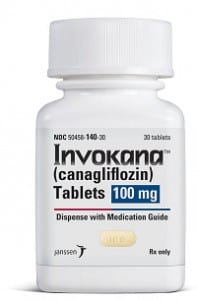 Patients in a clinical trial taking Invokana and Invokamet were roughly twice as likely to suffer amputations as patients taking placebo. The U.S. FDA reported the clinical trial results May 18, 2016 on Janssen Pharmaceuticals’s top-selling diabetes’ drugs.
Patients in a clinical trial taking Invokana and Invokamet were roughly twice as likely to suffer amputations as patients taking placebo. The U.S. FDA reported the clinical trial results May 18, 2016 on Janssen Pharmaceuticals’s top-selling diabetes’ drugs.FDA said the trial revealed that the equivalent of five of every 1,000 patients taking a 300-milligram daily dose of the active ingredient canagliflozin needed amputations, while an equivalent seven of every 1,000 patients taking a 100-milligram daily dose needed amputations. Meanwhile, on the placebo side of the trial, just three of every 1,000 patients taking the “drug” required amputations.
Invokana linked to Amputations
The amputations in the trial concerned toes, feet, and/or legs. FDA officials said they are working to determine whether canagliflozin really does elevate the risk of amputation. FDA cautioned that patients shouldn’t stop taking Invokana or Invokamet without first seeing their doctor.
FDA said, “Patients taking [canagliflozin] should notify their health care professionals right away if they notice any new pain or tenderness, sores or ulcers, or infections in their legs or feet.”
Canagliflozin is the only active ingredient in Invokana. In Invokamet, canagliflozin is combined with metformin, another active ingredient.
Invokana, Invokamet for Type 2 Diabetes
Invokana and Invokamet, approved in 2013 and 2014, are used to control blood sugar levels in Type 2 diabetes’patients.
The ongoing trial examines how canagliflozin affects cardiovascular health. It has followed patients for 4 ½ years so far. FDA said that a similar clinical trial that has followed patients for nine months has not found the same elevated risks of amputation.
Janssen Responds
Janssen officials said in a statement that they, “remain confident that canagliflozin is an important treatment option for people with Type 2 diabetes.”
Company officials also claimed that the increase in amputations has not been observed in a dozen other Phase III and Phase IV trials or in postmarketing safety reports.
According to the Mayo Clinic, diabetics are already at risk of amputations because the disease can cause nerve damage and impair blood circulation.
Invokana Warnings
Invokana was the first in a class of drugs known as sodium-glucose cotransporter 2, or SGLT2 inhibitors. The drug was approved despite concerns regarding cardiovascular health and bone safety. Since approving Invokana, the FDA has since updated Invokana’s and Invokamet’s warning labels to reflect bone fracture risks. Invokana’s labels, along with the labels of other SGLT2 inhibitors, have also been updated to disclose blood disorder risks and urinary tract infections.
SGLT2 Inhibitors
Other drugs in the SGLT2 class include AstraZeneca PLC’s Farxiga and Xigduo XR, (dapagliflozin, and a dapagliflozin-metformin combination); Boehringer Ingelheim GmbH; and Eli Lilly and Co.’s Jardiance and Glyxambi (empagliflozin and an empagliflozin-linagliptin combination).
Related
- Invokana Lawsuit Attorney
- Diabetes Medicine linked to Ketoacidosis

by Matthews & Associates




